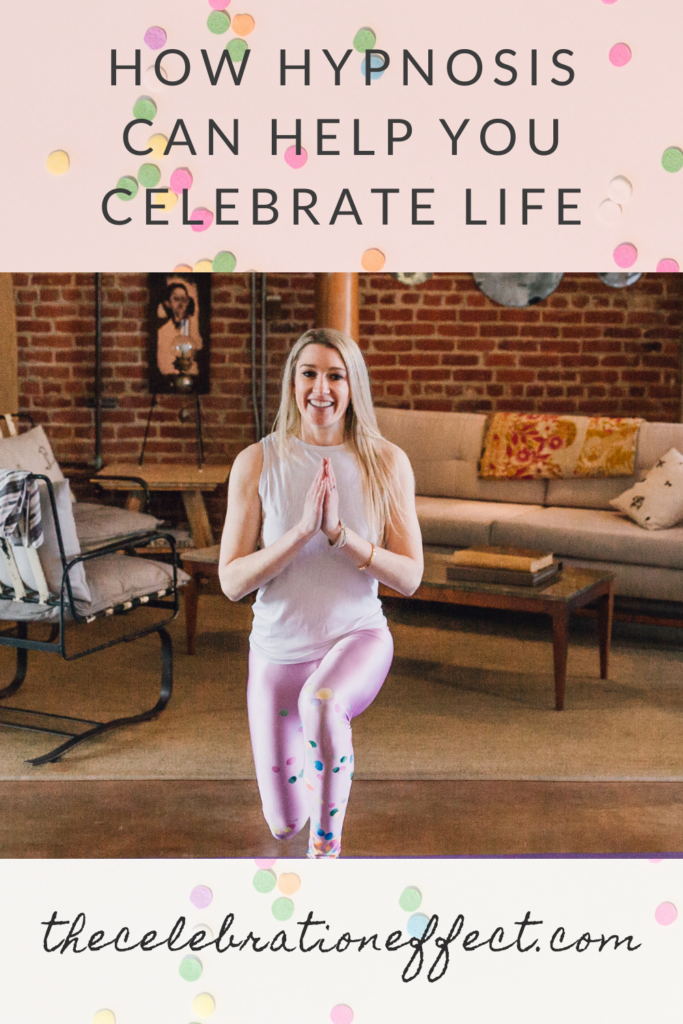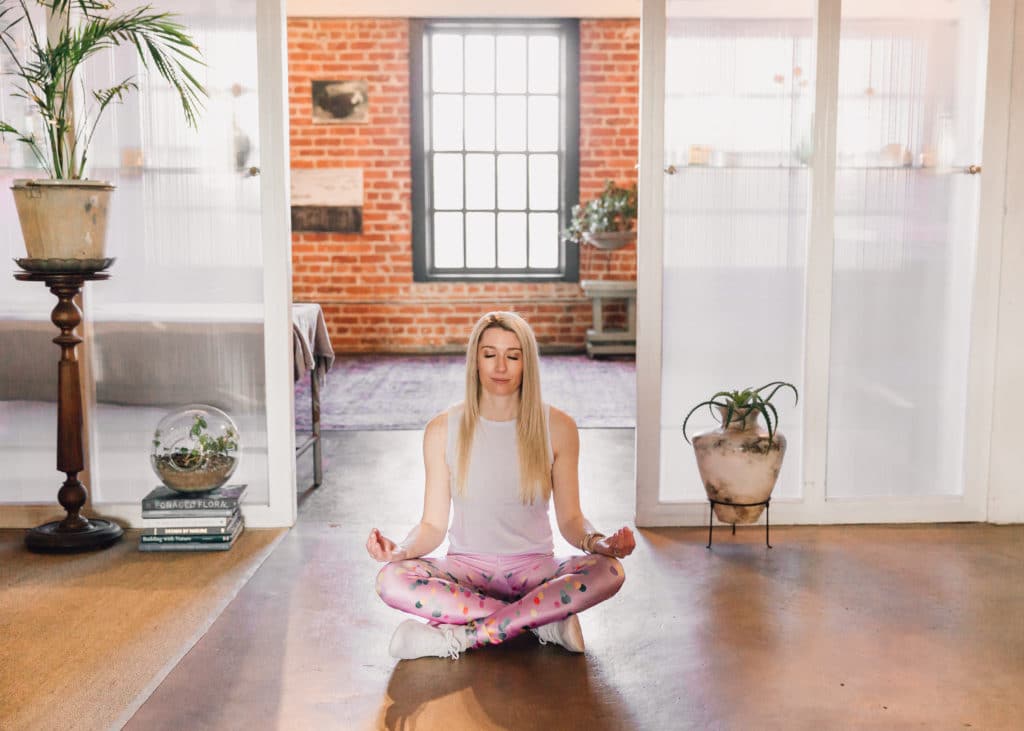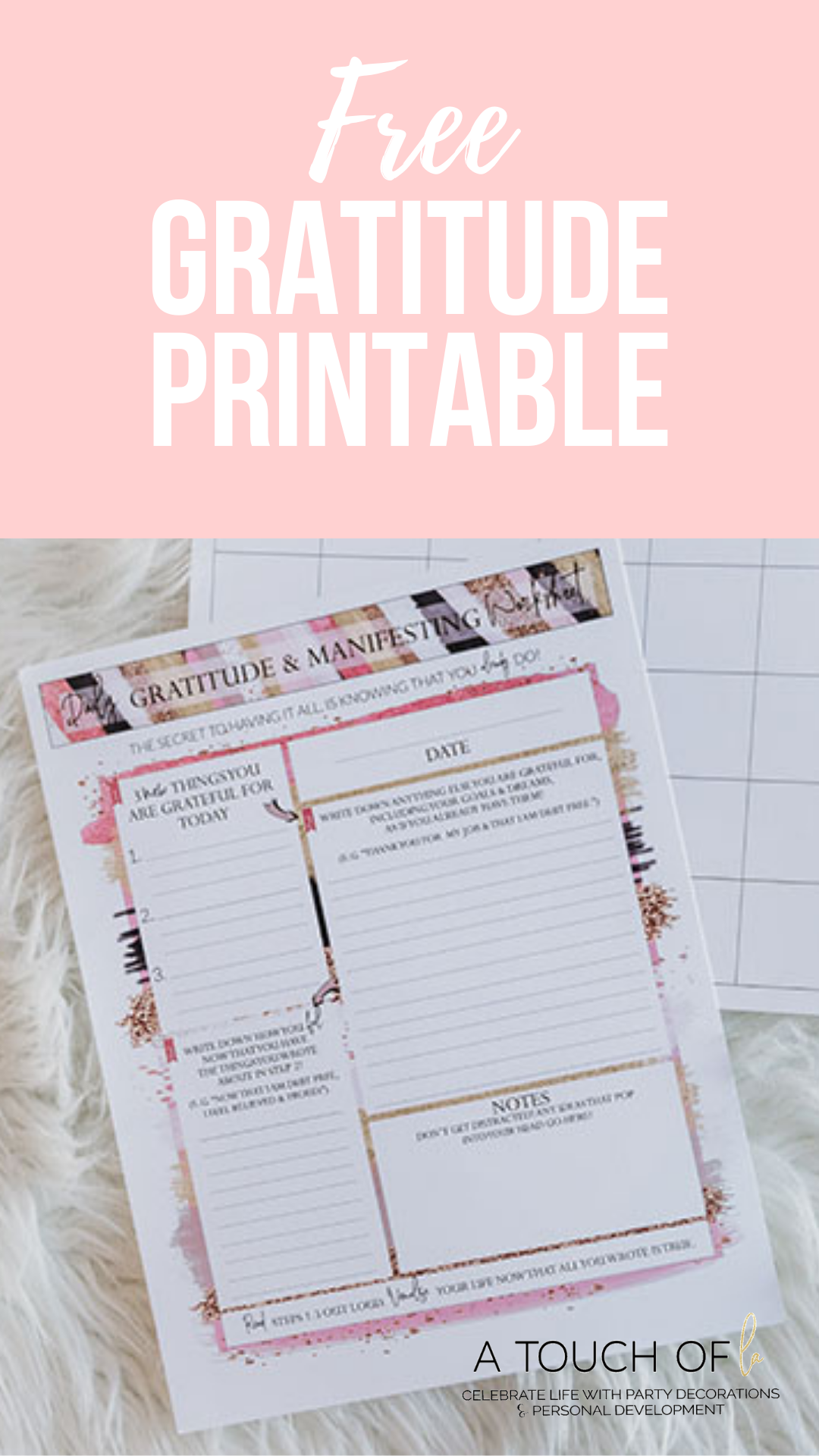I started my podcast, The Celebration Effect, and this blog to provide you with new ways of living, thinking, and being, to help you celebrate your life! Today I want to introduce you to something that you might never have thought of before to bring positive changes to your life. I interviewed a board certified hypnotist who is going to help us to better understand How Hypnosis Can Help You Celebrate Life.
Please note, this page contains affiliate links to products I recommend. If you purchase something from this page, I may receive a small percentage of the sale at no extra cost to you. For additional information, please see my privacy and disclosures page.

Penny Chiasson is two time #1 international best-selling author and award winning Board Certified Hypnotist, with a background in Nurse Anesthesia and pain management hypnosis. I chatted with her about the basics of hypnosis and how it can be beneficial in rewiring our brains for success and How Hypnosis Can Help You Celebrate Life.
What you do and how you help people?
I’m passionate about helping women who have underlying beliefs or doubts or fears that are keeping them from living the life they want to live.
Is there a difference between hypnotherapy and hypnosis?
To be a hypnotist, you need to take training and verification in hypnosis. And there was a time when people used hypnosis and hypnotherapy interchangeably. For those of us who don’t have background of an education or counselling or therapy, where moving away from using the term hypnotherapist because it leaves us a bit of a gray area. I think it’s important that we make a clear distinction of what we’re providing is not therapy for a person. So that they understand what they’re getting. Because in some states, it becomes an illegal issue. That’s why I refer to myself as a hypnotist.
Some people’s only experience with hypnosis are stage shows where people are hypnotized to do crazy things. How does what you do differ from that?
The work that I do is insight based with the client. It’s more of a dialogue between the two of us, instead of me giving someone instructions. All hypnosis is self-hypnosis because even with stage hypnosis, people volunteer. When people volunteer, they know that they will be doing things that are kind of crazy, wacky, and fun. So they’re consenting to be part of that process that makes them open to the suggestion. When you’re in hypnosis, you can’t make anyone do anything that they don’t want to do. I think that’s one of the biggest distinctions.
The process of going into hypnosis, the following of instructions, the entering of state, becoming more suggestible, and responding to those suggestions. It’s the same whether you’re using hypnosis for change or stage hypnosis. If it’s what people are exposed to, they’re really unsure of what to think. Sometimes they maybe a little hesitant and unsure.
You won’t get stuck in hypnosis. If I stop talking, you will either fall asleep or you will realize I’m not talking to you and you wake up. They open their eyes and say, “Why is she not talking to me anymore?”

Why would someone come to you to be hypnotized?
Everything that we do is habit. Habits are very easily taken care of with hypnosis. One session may help someone eliminate a habit or a behavior, or to incorporate a new habit or behavior. Hypnosis can also help you get to those underlying issues.
I’ve worked with people from everything from stopping smoking, to stop craving chocolate, to confidence and motivation, to chronic pain. I help people eliminate those things.
How Hypnosis Can Help You Celebrate Life
One of the most common things I work with these days is “anxiety”. “Anxiety” is a term that’s loosely used these days. A lot of people talk about having feelings of anxiety when there is no clinical diagnosis in place. It’s important that if you have a clinical diagnosis of something, then your healthcare provider needs to be aware that you’re going be using hypnosis as a tool to help deal with that. “Anxiety” is just fears or nervousness that people have that they really can’t put their finger on that makes them feel bad, nervous, or distracted. And that’s probably most commonly what I’m dealing with these days.
What are some of the top reasons why moms or women might come to you for? Do you deal with body image, self confidence, etc?
All of those are what people commonly seek out. I don’t work with weight management but weight is a big one. Sleep, confidence, stress, is a huge one. A lot of people don’t identify stress, they recognize that they’re getting into some form of a distracting behavior or they notice that their confidence and motivation is lacking. When you have kids, it’s easy to get over-committed and overwhelmed. You don’t have a lot of rest. So those things come into play. But since you’re talking to moms, I don’t work with children. But hypnosis is very effective with kids if you’re dealing with things like nail-biting, thumb-sucking, bed-wetting. When they get to the age of 4 or 5, hypnosis is a great tool and kids are easy to work with- it can make life easier.
How many sessions does it take to see a change from hypnosis?
Most of my clients begin to see a shift after their very first session. And that is always my goal. To get some recognizable shift for my client in their first session. Sometimes it’s subtle and sometimes it’s a major AHA moment. Pretty much with any hypnosis that you do, after that first session, you should begin to see some shift and change. Unless, you have really negative self-talk to work on and issues around that. Because what you do when you leave the hypnosis session is just as important as what you do in the hypnosis session. Because you can suggest yourself right out of what you’re in there for, if you’re not careful.
I just read a book from Dr. Joe Dispenza “You are the Placebo”, which talks about how suggestible people are. Are some people more suggestible than others?
There are a few different factors to take into consideration. Someone needs to be able to follow instructions. If someone had an injury or disability that inhibits him from following verbal instructions, that can definitely play a role. How much of an over-thinker someone is, can play a role. If someone is a critical thinker- an Engineer, a Mathematician, something along those lines they’re always working to sort things out. Their conscious analytical brain comes into play and can interfere.
Generally, if I can talk to someone about hypnosis and address their concerns and fears, I can guide them into a state of hypnosis. I’ve only had a couple of clients that couldn’t get into a deep state of hypnosis and one of those clients had a traumatic brain injury which was not surprising.
What do you say to someone who thinks they can’t be hypnotized?
Even in a lighter state of hypnosis, it is still beneficial. You can take advantage of different levels of hypnosis for different types of work. Probably about 10% of the population is not suggestible. And you can be suggestible without hypnosis. Otherwise, as adults, how would we ever learn if someone can’t get to us to entertain an idea and decide to either incorporate that idea into our life, or not incorporate it into our life?
Hypnosis is just a high state of our normal level of suggestibility. Pretty much, if you can follow instructions and it’s someone that you trust -that’s another key piece of the puzzle. If it’s someone that you trust and you have rapport with, you can be guided into a hypnotic state.
Is hypnosis something people can do virtually?
Audios are great. And actually when people reach out to work with me, I’ll find out what they’ve done in the past. They may benefit from an audio. What I do is the deep internal and subconscious work. The insights, beliefs, and fears that are underlying there. If I feel that someone will benefit from an audio, I will send them in that direction.
If anyone out there is interested in looking up audios, the best piece of advice that I can give you is if you try one and it doesn’t work, find another one. Because something as simple as the tone of someone’s voice or their pace may not resonate well with you. And you simply don’t go into hypnosis for that reason, and that reason alone. I’ve actually purchased audios before and five minutes in decided that I’m not listening to that again. Just because I didn’t like the way it sounded.
When you say “It didn’t work” how do they know that it’s working?
The biggest thing is to simply kind of let go and allow. Follow the directions. It’s not uncommon when people go into hypnosis, for their mind to wander- they’ll hear noises, open their eyes and look around. They may even fall asleep. All of those things are normal. The key is to do it more than once. Not at the same time obviously but to repeat the practice to get into the groove with the practice. And just re-evaluate after a few days. Say someone did it for anxiety. Maybe they feel more calm, more at peace. If you’re not noticing a change, try a different audio. It’s simply because you might need different suggestions to feel better.
What is the difference between self-hypnosis and guided hypnosis?
I consider all hypnosis self-hypnosis. Because people have to follow directions and basically guide themselves in. But whether you have instructions to do a self-hypnosis where you’re using your own imagery or your listening to an audio. So it’s all really kind of self- hypnosis.
When someone works with me, I consider myself a guide. Because I’m not doing anything to them. When it’s guided, as opposed to listening to an audio, you get the benefit that the hypnotist lays eyes on you. We see the rate that you’re breathing. We can watch your eye movements. That gives us an indication of when you’re beginning to go to the hypnotic state. We can gauge your reaction to us, so we can slow down, or speed up. And time the wording of what we’re saying to your physical response. A common phrase that’s used in a hypnotic induction, is “with each gentle exhale, you relax further and further.” It’s one thing to hear that in an audio. And another for the hypnotist to see you, and time the wording with your breathing. It’s a subconscious queue. It elevates the experience.

Tell us some insight about your book and where to get it.
I released Breaking the Fibro Code, a book that is geared toward people who are suffering with fibromyalgia. Any amount of healing all starts with your mindset. Years before I even knew about hypnosis, as a Nurse, I was acutely aware of watching my patients. I noticed that healing depended on their perspective and outlook.
Breaking the Fibro Code is about how to harness your relaxation response to diminish information and how to begin to use the mind the way that you perceive and respond to things. To create a more positive state within your body. So that your body’s chemistry is actually working in your favor, instead of against you. The book is for anyone that may have any type of an issue with chronic illness and it’s not just fibromyalgia. That just happens to be who I targeted because those women tend to have issues around the way they perceive the diagnosis. I enjoy helping address those underlying beliefs and letting them go.
If someone wants to work with you or learn more about you, where can they find more information?
My website is pennychiasson.com or they can follow me on Facebook, or follow me on Instagram. I have a link to a video on the homepage of my website that teaches you a relaxing breath that increases serotonin levels, increases melatonin levels, increases your endorphins and interrupts that stress response.
Moms who can use this audio to feel relaxed and bring a sense of peace into their day-to-day, so they can stay healthy and have energy to keep up with the kids. It’s a great tool.
What else would you like to share with us today?
The main thing I would say to moms, no matter what your kids are feeling, to validate that feelings and find out what’s causing them to feel that way. It’s not anything we’re taught as parents. I’m a parent of three grown men and I was never taught about emotional intelligence. What’s a healthy way to address our feelings? And validation is a very big piece of that.
Conclusion: How Hypnosis Can Help You Celebrate Life
It was so refreshing to talk to Penny and hear How Hypnosis Can Help You Celebrate Life and that it is a great way of healing ourselves – both physically and emotionally. And I couldn’t agree more about what she said regarding validating our children’s feelings. I hope that this gave you a new outlook about How Hypnosis Can Help You Celebrate Life. I know for me, I will definitely be checking out her audio, and possibly setting up a session with Penny soon. If you’d like to hear this interview, make sure to check out The Celebration Effect Podcast.
Let’s Connect!
Thank you so much for taking the time to read about How Hypnosis Can Help You Celebrate Life! I love to help you celebrate life through party decorations and personal development! But above all, I’d love to connect with you. Reach out to me on Instagram and let’s chat. You can also get my FREE gratitude journal printable to help you start celebrating your everyday life through gratitude.
xox Lindsay

